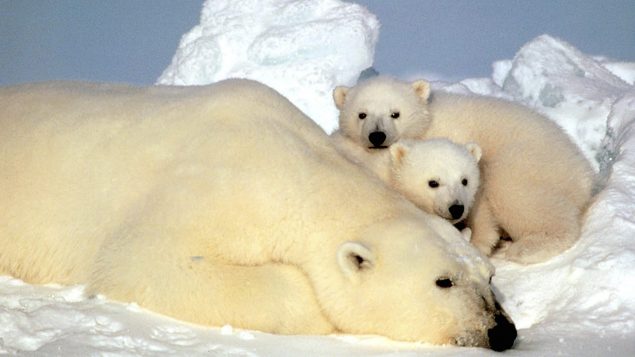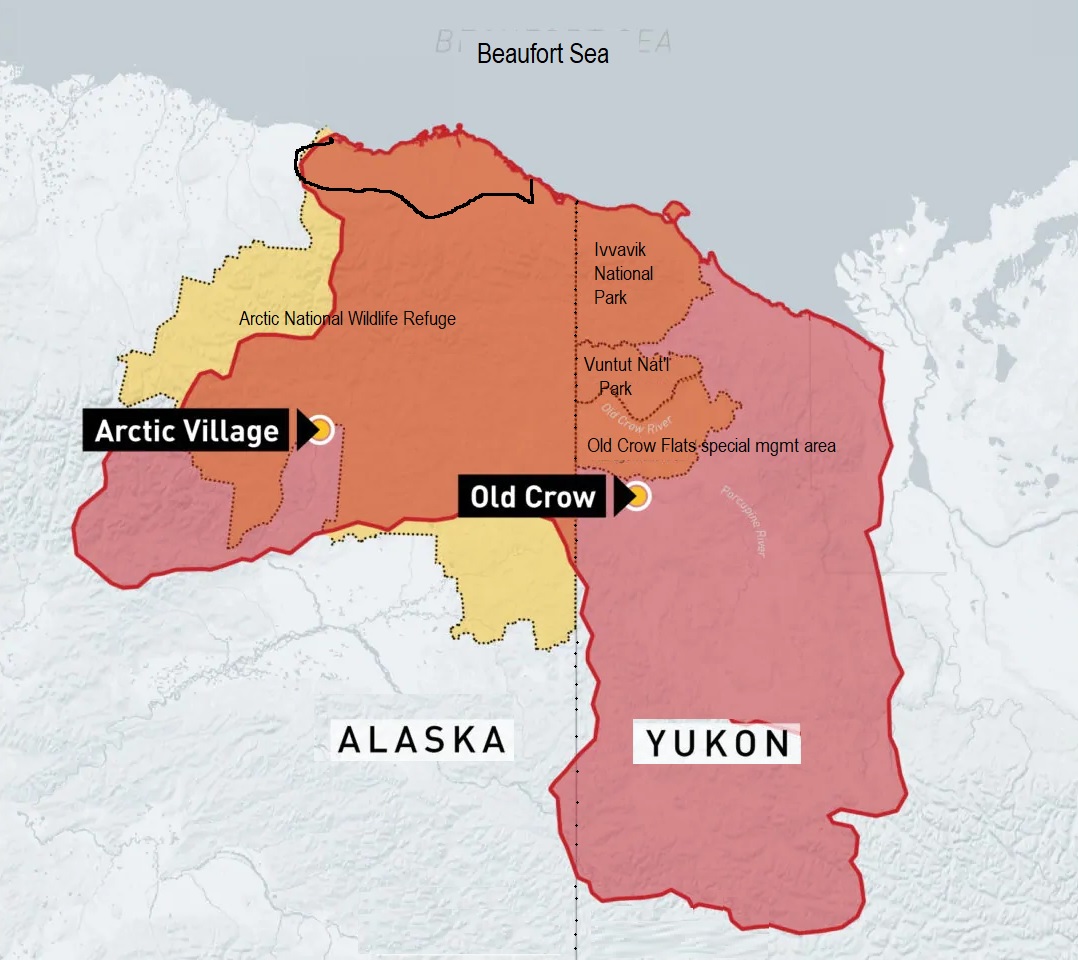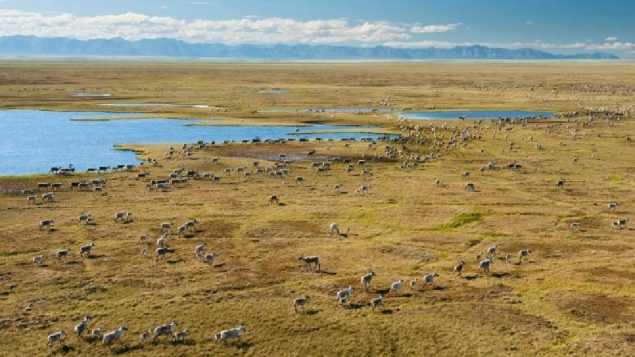With the U.S election imminent, an extremely controversial environmental question hangs in the balance.
The Trump administration has been pushing for quick approval of seismic testing in a huge Alaskan wildlife refuge that borders on Canada’s Yukon Territory.
The Arctic National Wildlife Refuge (ANWR) also borders on two Canadian parks in Yukon, Ivvavik, and Vuntut national parks. Canadian Indigenous groups in the region have been protesting the move saying it will compromise the caribou herds they depend upon.
They’ve also been lobbying Canadian banks not to help fund any such project. The Royal Bank of Canada (RBC) has joined some two dozen other major financial institutions that have indicated they won’t fund resource development in the ANWR.
Late last month another major Canadian financial institution, the Bank of Montreal (BMO), announced that it too would not fund development in the refuge. A statement on its website reads, “ “It is the bank’s intention to avoid direct financing for any project or transaction that involves exploration or development in the Arctic National Wildlife Reserve,”
Quoted in Mortgage Broker News, Dana Tizya-Tramm, chief of the Vuntut Gwitchin First Nation in Yukon said . “Our message is clear: any bank that finances drilling in the Arctic National Wildlife Refuge would be complicit in the destruction of one of the world’s great wild places, the worsening of the climate emergency and the erosion of the Gwich’in way of life. Our case is compelling: impacts and prices to develop are high, while oil prices and public support for drilling are low. … We hope that CIBC, Scotiabank, and TD will soon follow.”

This undated photo released by the U.S. Fish and Wildlife Service shows a sow polar bear resting with her cubs on the pack ice in the Beaufort Sea . The coastal plain of the ANWR is known as major denning site for the bears, and there are concerns any exploration could harm a population already facing hard times due to a reduction is sea ice. (AP Photo/U.S. Fish and Wild Life Service, Steve Amstrup, File)
As for the initial phase of oil development the seismic testing to locate and determine scope of any oil reserves would be in the huge 1.5 million acre coastal plain area of the more than 78,000 sq/km reserve.
The effort, if approved, would involve several huge “thumper” trucks to create the seismic waves which would locate oil reserves underground, dozens of other vehicles, trailers for the personnel and a landing strip for aircraft. The personnel and material would move every few days across the sensitive tundra following the massive thumper vehicles. Critics say this will leave permanent tracks in the sensitive soil and permafrost in addition to other damage.
The surveying would begin in December and continue for the next few months until the ground starts to thaw in spring.
All of this in an area that is home to a vast number of plant, animal, and bird species.
Environmentalists are extremely concerned about the possibility of seismic testing as a prelude to potential drilling. They say it could permanently damage the sensitive landscape and disrupt sensitive wildlife. The area is also known as a major denning area for polar bears of the region, already facing more difficult conditions from lessening ice conditions in the Beaufort Sea.

Yellow is the extent of the ANWR, Pink is the range of the Porcupine Caribou herd, orange is the overlap. The black line shows fer approximately the coastal plain where development is planned (CBC)
For decades the reserve had been protected from oil and gas exploration and development with American bipartisan support.
With the rush to push through simple environmental assessment, there has been much criticism of the lack of an in-depth environmental review.
There is also some disagreement among native groups as the Indigenous-owned Kaktovik Iñupiat Corporation (KIC) is pushing the project the Gwich’in say it will threaten their culture and sustenance. They depend upon Porcupine caribou herds that migrate back and forther between Canada and the coastal plain where they calve in summer.
The public only has a limited time to comment before a decision is taken. It’s not known how the outcome of the U.S election might affect the testing, exploration, and potential future leases. In the meantime there are a number of American court cases against the plan to open up the refuge to resource exploration but which also include Canada’s Gwich’in Steering Committee, and the Yukon chapter of the Canadian Parks and Wilderness Society (CPAWS).
additional information-sources
- Inside Climate News: S Shankman: Oct 29/20: Trumps Interior Department pressures employees to approve seismic testing in ANWR
- Audubon: X Chiang-Warren: Oct 30/20: The public gets just two weeks to weigh in on seismic testing in the Arctic refuge
- CBC: A Zingel: Oct 5/20: RBC joins string of banks that will not directly fund drilling projects in Arctic refuge
- Associated Press (CBC) Aug 7/20: U.S approves, oil, gas leasing plan for Alaska wildlife reserve
- Mortgage Broker News: E Vecina: Oct 28/20: BMO joins boycott of Arctic National Wildlife Refuge oil and gas projects







For reasons beyond our control, and for an undetermined period of time, our comment section is now closed. However, our social networks remain open to your contributions.